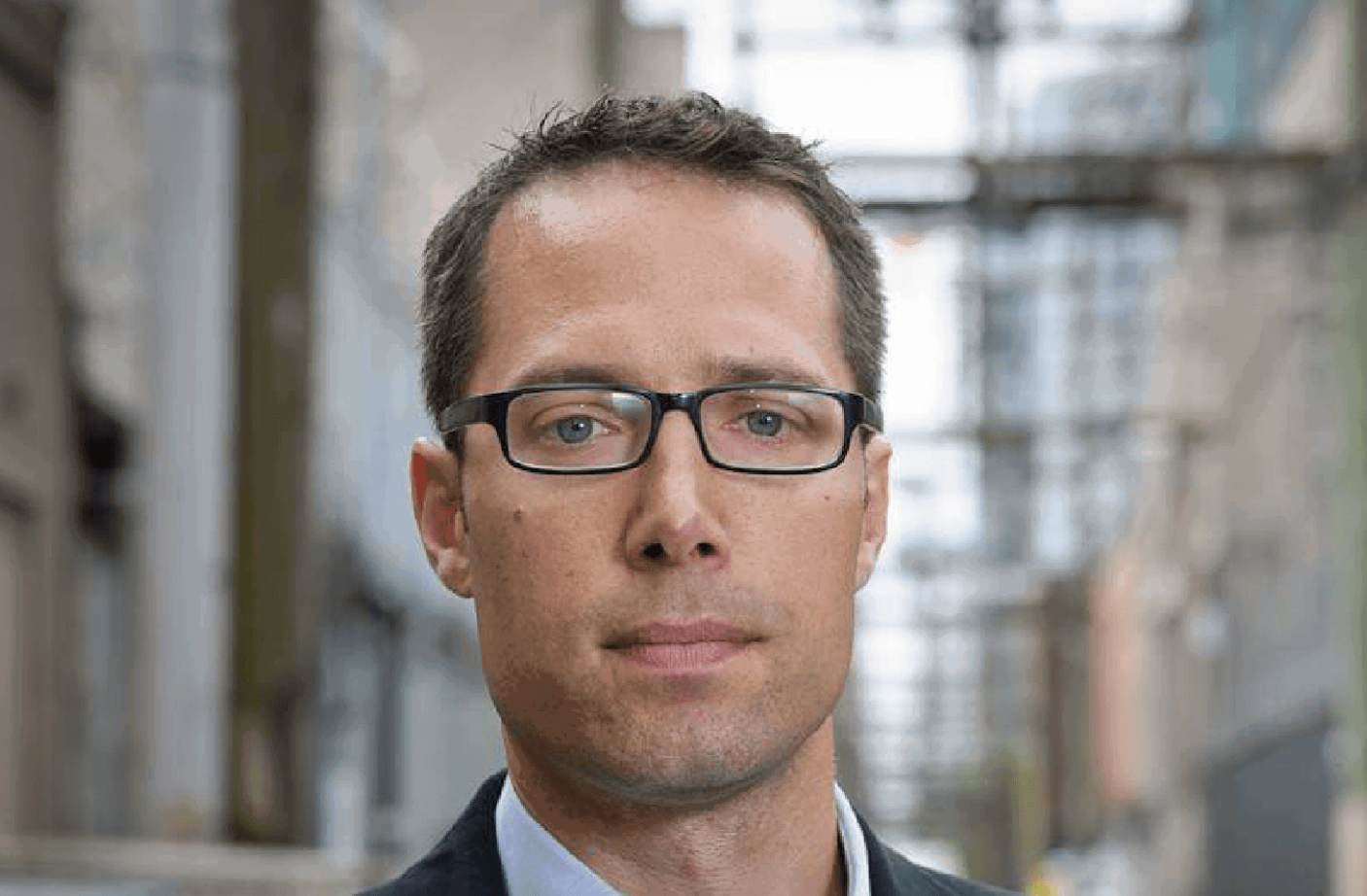Dr. Evan Wood, MD, PhD is Chief Medical Officer at Numinus Wellness, a psychedelics company out of Vancouver, BC. Numinus is on the cutting edge of mental healthcare, specializing in psychedelic-assisted psychotherapy with novel psychedelic compounds.
Dr. Wood has a passion for changing policy, often by putting research into practice. Early in his career, his research contributed to the international guidelines for treating HIV infection among persons who use drugs. His later work contributed to the legalization of adult cannabis use in Canada and establishing clinical therapeutic guidelines for a range of substance abuse disorders.
Over the last 20 years, Dr. Wood has delved deeply into the science and research around substance use and addiction. His lab was a participating site in the maps phase three clinical trial of MDMA-assisted psychotherapy for post-traumatic stress disorder.
He is recognized for his work in improving clinical systems through research and policy leadership, particularly within the field of addiction and mental health.
Dr. Wood is passionate about his work in forwarding psychedelics’ clinical use for various intractable health conditions. As Chief Medical Officer of Numinus Wellness he is breaking ground for safe, legal access to psychedelic medicine for conditions including depression, PTSD & substance use disorders.
Below is HelloMD’s interview with Dr. Wood discussing the future of clinical-assisted psychotherapy and treatment with psychedelics.
Question: Dr. Wood, please tell me how you perceive the current mental healthcare system, where it succeeds, and where it fails?
Answer: I actually view the entire field of mental health and addiction with a great deal of consternation and skepticism. Currently, I think that the widely made interventions in the mental health and addiction world are often not evidence-based.
I believe we pathologize a lot of things that are actually, in many respects, part of the human condition – such as anxiety and depression. It isn’t that we shouldn’t take them seriously.
However, things like anxiety and depression are things that we need to grapple with from the perspective that it is part of the human condition. I do not believe we should pathologize people and tell them that they have a disease, necessarily.
I believe the prescription medications that are commonly employed with mental health conditions otentimes have dubious benefits. For some patients the benefits are genuine, but for many patients there aren’t any noticeable benefits. We have this notion of a mental health system that involves getting a prescription and taking a pill, as if that’s going to be the solution.
Often patients don’t like taking these medications, as they experience negative side effects, whether it’s weight gain or erectile dysfunction, or even more serious side effects, like increasing the risk of suicide. Unfortunately, I don’t think we have a functioning mental health and addiction healthcare system in our society.
Instead of offering a medication, perhaps we should look at changing a person’s environment. That might be a better start. If we think that by taking a pill every day we’re going to solve society’s mental health challenges, I think that’s wrong.
Anyone who says that, really needs to check in with their own ethics. The reality is, we need a totally different approach to wellness and recovery with early intervention. Going to see your primary care physician who writes you a prescription for anti depressant after 10 minute assessment; is not going to help us become a healthier society. So, we need a total rethink around that
Question: What success have you had in reforming the mental and addiction healthcare system?
Answer: There are some bright spots and areas of success and accomplishments that I am proud of. I was involved in creating North America’s largest addiction medicine training program at the University of British Columbia. During this time, I helped train and mentor junior trainees within the fields.
I’ve had accomplishments such as being the founding principal investigator of the first supervised injecting facility in North America in terms of addiction. Here, people can get pre-obtained street drugs and use them under healthcare practitioners’ supervision to avoid overdose and help connect them with addiction treatment.
Another area where I’ve worked with others towards success is in authoring national therapeutic guidelines for the treatment of different substance use disorders. I’ve got a wonderful group of colleagues here in British Columbia, and everything that I just shared has been part of a team effort. Furthermore, I’m proud of what my colleagues have done by going the extra mile to try and create a more functioning system of care for people with mental health and addiction.
Question: Besides getting involved in psychedelic research, you also were active within federal cannabis legalization in Canada?
Answer: Historically, there’s been a massive illicit cannabis industry driven by local interest in (consuming) cannabis and the huge illicit export market to the the United States. Pre-legalization, the illegal outdoor and indoor cannabis industry boomed. In reality, this trade supported people and families; many people had basement cannabis grows which paid their bills and paid off their mortgages. However, there was a dark side to all of this.
This was an illegal economy, and we had all sorts of problems and continue to, because illegal drugs allowed organized crime and gang violence to flourish. There began to be a lot of intelligence sharing between the US and Canada as it went from cannabis to cocaine, and guns coming into the country due to the illicit trade.
Due to the escalating situation, I helped to found a coalition called Stop The Violence BC, where we began to change the narrative in British Columbia. The fact the government made cannabis illegal was making the situation worse, not better. As crime worsened around the illegal cannabis trade, there was a tipping point in public opinion in Canada.
Our group worked with the junior liberal party of British Columbia that ultimately took a motion to the national convention where Justin Trudeau, our current Premier, committed to legalizing and regulating the adult use of cannabis for recreational use in Canada. This was a foundation for the legalization of cannabis in Canada and helped to build the legal framework in which we work today.
Question: As Chief Medical Officer of Numinus, what do you see today and what do you hope to achieve for the future of psychedelics?
Answer: Our lab is a participating site in Phase three clinical trial of MDMA for post-traumatic stress disorder, which MAPS has now helped yo complete. One particular area of interest for me is how this might have a positive impact the world of addiction.
For instance, one psychedelics called ibogaine, has shown great success in treating addiction. Traditionally, it’s been legal in Canada but illegal in the United States. There’s a whole industry of people offering ibogaine treatment to British Columbia, but it has some toxic effects, so I’m not a big advocate for it.
One reason is that ibogaine can cause a cardiac arrhythmia and can be quite dangerous for some people. But, I’ve certainly had patients who were in the throes of addiction and came back into my office, and I’d be like, "Whoa, you look amazing. What happened?" And then they would say, "Oh, I went and did ibogaine." So, that is something, and I believe we have yet to see the full potential psychedelics have in treating addiction and mental health conditions.
As a result, I developed an interest in understanding psychedelics as a new approach to medicine- a new paradigm. I’m an avid consumer of the literature. With new and different studies being published by institutions such as Johns Hopkins, you can see the results of research with psilocybin for addiction and mental health and the positive outcomes being experienced.
When it comes to addiction, the rational mind often does not allow for someone to stop using a substance. It’s like the reptilian brain takes over and goes haywire with addiction, and then there is the reward pathway with dopamine that induces people to take more of a substance.
I think psychedelics offer the opportunity to bring together that thoughtful brain with that reptilian brain to create radical change. It’s also a total paradigm shift because you’re not talking about a daily medication, take a pill and you’re immediately better. We’re talking about a strategy to put somebody through a psychotherapeutic intervention with psychedelics and, ultimately, a possible cure.
Psychedelic intervention, in both the mental and addiction space, is extremely promising. There’s more research to be done, but it looks extremely promising right now. So, I am super excited to be part of the different groups that are exploring these interventions. It shows such promise, and this may be a building block towards a much more evidence-based approach to mental health care.
Question: Today, what is Numinus doing within the psychedelics space and how does it differ from other players within the space at this point?
Answer: Numinus has excellence among the leadership team. In some instances, our team has lived through the psychedelic experience and has felt first hand the impact it may have on one’s life.
Our CEO, Peyton Nyquist has been very public about his own challenges with PTSD and how he was in and out of hospital until he found psychedelic-assisted psychotherapy.
If you saw him today, he’s the absolute picture of health. Thus, he carries that motivation as someone who was in a life-threatening situation and found something, psychedelics, which helped him. People who live through these experiences want to create real change, and often do.
Our lab was also the first to be federally approved by Health Canada to grow psilocybin mushrooms. We are very active in doing extractions and developing products, and understanding these mushrooms on a deeper level through science. There’s psilocybin, but there are also other psychoactive molecules of importance. There’s lots to be learned and done in this space. We have a long ten-year history as a lab, so it is a very experienced team with great ability.
There’s also the clinical side of Numinus. We are interested delivering excellence in service in regards to psychedelic clinically-assisted psychotherapy, that is evidence-based. We also take the experience from historical traditions (indigenous cultures), and learnings from the underground psychedelic community over the last many decades. Of course, we also look at the best practices from the institutions doing the serious research and clinical trials, which have brought us to where we are today.
Question: What about ketamine? It is one psychedelic that is currently legal in much of North America. What are your thoughts?
Answer: We’re also very interested in ketamine and ketamine-assisted psychotherapy because it’s extremely promising. If you look at being a full-service psychedelic clinic network, ketamine can allow us to treat individuals more or less today.
It could be anxiety or depression or post-traumatic stress disorder. Within a clinical setting, we can have very highly skilled therapists and health professionals who can make an appropriate diagnosis.
Therapists can tailor a treatment, which may or may not involve psychedelics, whether that be ketamine today or psilocybin in the near future. This model may involve other mental health and addiction services with a curative intent. We aim to help people, by treating a person holistically, including mindfulness practices. This may also involve psychedelic-assisted psychotherapy. Ultimately, we are changing the way we look at mental health and addiction within society, to help create better outcomes than what we experience today.
Watch Dr. Evan Wood talking about psychedelics and the therapeutic potential.






